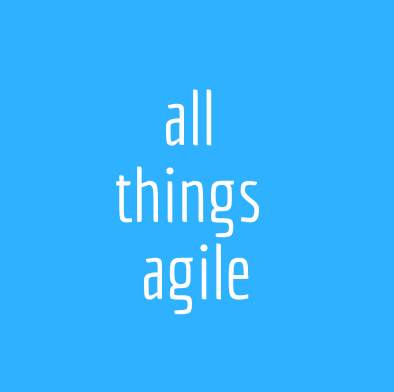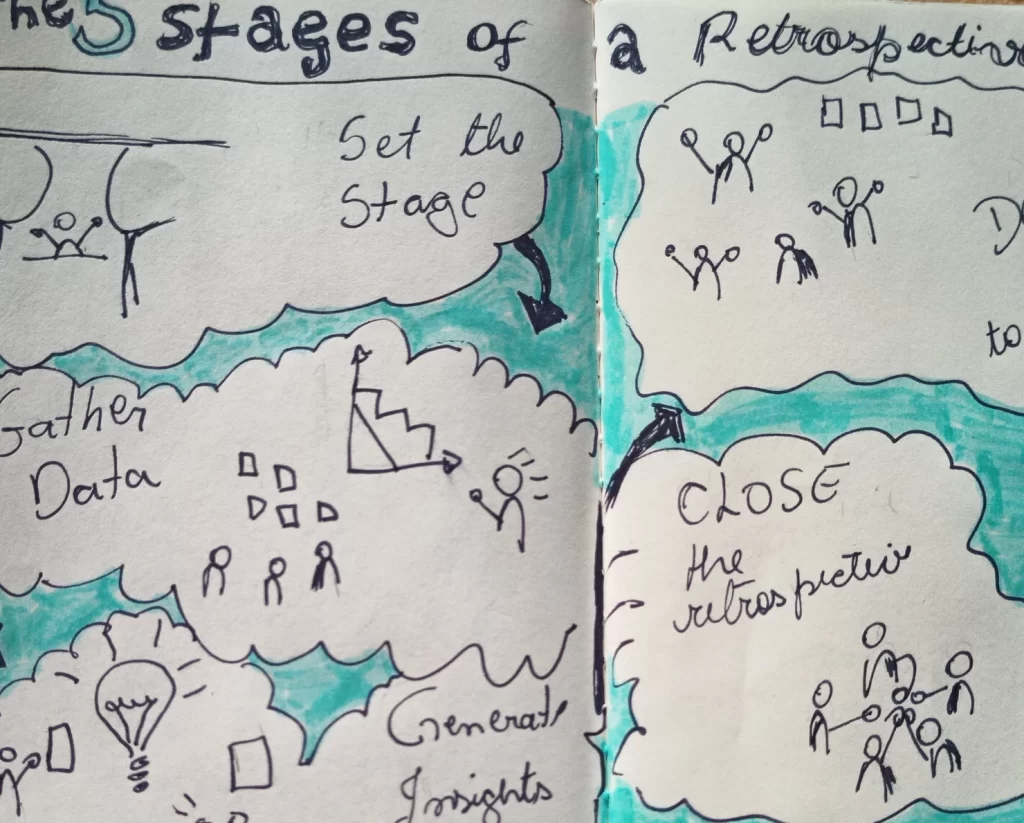
Are we witnessing the end of Scrum? Between blogs and social media posts, this seems to be a common question. But not that long ago, I saw a similar trend with Agile. I don’t buy it, but it’s worth a conversation to examine where these thoughts come from and where they can lead us. So, let’s explore why Scrum seems to be falling out of favor and what the future of Scrum might look like.
If you’d rather watch a video than read, check out my Youtube video on this topic:
Table of Contents
ToggleFirst, a brief history of Scrum
Scrum isn’t new. It started in the 1990s, so it’s been around a while. I personally enjoy Scrum and have used it as a software developer, I’ve been a Scrum master, and have coached teams that wanted to adopt Scrum. In fact, I have even developed a free resource for you called Scrum in Practice if you’re interested!
And I don’t seem to be the only one who enjoys Scrum. Scrum is the most widely used and mentioned framework. It has spread so widely in fact, that even the frameworks that came after were based off of it. Because of its popularity and longevity, Scrum has been tested and retested like nothing else. When you hear about things about the Spotify model or other modern uses of agile, they all stem from people toying with Scrum framework. Serious practitioners have tried to push the limits of Scrum which brought a lot of interesting questions to the forefront, such as whether it is just for teams or can it be used at organizational scale.
Scrum is easy, it’s prerequisites are hard
Some very passionate people who defend Scrum say that it is easy to understand but hard to master. I don’t find this sort of explanation useful or accurate. When you really pay attention to the framework and its simplicity, you can’t ignore the prerequisites such as the values, work transitions, the level of trust, and involvement from managerial levels. If the prerequisites are not in place, you won’t succeed with Scrum.
This is the kind of thing that makes Scrum really great for early adopters because these are teams that already possess a certain level of autonomy. They have trust within the organization and within themselves, they have created a space of psychological safety, they are primed to do great work, and they know how to communicate. For these people, Scrum is perfect.
While Scrum will empower teams, it doesn’t tell you anything about how to put the prerequisites in place. Sure, you can say it’s not up to Scrum to do that, but it is a weakness that happens in the field. You have no blueprint of how you can include other layers of the hierarchy, for example. And let’s face it, managers and sponsors are a big part of why and how an organization works. You should be figuring out ways in which teams and their managers can collaborate in full partnership with respect and trust, because guess what? The number of organizations that are more hierarchical is huge.
As agility, adaptability, and flexibility have made their way into business and organizations, of course Scrum was the favorite framework, but it just hasn’t yielded results that are compelling. We can argue about why that is, but the reality is that Scrum was not created for this kind of space.
Enter Agile
From my perspective, it feels like mastering Scrum is a gateway to understanding that there is a more elevated stance to help teams, managers and organizations. Scrum is not enough. You need to understand what organizational performance means, the impact of culture and leadership style, how all systems are designated around teams, and how to communicate with all sorts of hierarchical layers in an organization. Even human skills like coaching and facilitation are crucial.
Every Scrum master, especially the ones who are just getting started, may feel like they’re in a nightmare trying to work with managers who don’t understand Scrum. But the manager doesn’t have to understand the Scum stuff, and you probably should understand more of the business side and what is really important at the organizational level.
The healthy performance of a team should reflect in the bottom line, and different layers of the organization will need to shift to accommodate a team who is operating at max performance. There is a cap here: your team can only be as good as the rest of the organization allows it to be. As a coach, you need to move around and help other managers and sponsors to understand and respond to what is going on.
It’s a complex environment and none of that is related to Scrum. This kind of work is not something you’ll learn in Scrum master school, but it is a big part of the work as an Agile Coach. It is the most complicated and the most necessary part of the job, because the Scrum, Kanban, or whatever framework, will come after. The prerequisites that need to be tackled for Scrum are what is really important.
So, what happens to Scrum?
Do we just abandon it unless we are amazingly elevated in our organization? Yes, and…
First of all, I think Scrum is still a great way to start testing the waters of agility no matter what your organization looks like. You can take it, start applying and see what hurts, what is hard, and what you can do about it. You might notice you are unable to produce anything at the end of a sprint. Is it because the sprint is too short or is it because our process is a mess? You start to have conversations that help identify the problem and challenge assumptions. You don’t need to necessarily have Scrum masters and product owners. The value is in having the discussions and identifying the roles and processes. It gives responsibility to the team and helps them work collectively.
As you can see, this is all golden info. Use it! A Lot of people get offended when I talk about Scrum as a gateway for Agility, but I see it as something marvelous that a framework can do this. I don’t think it diminishes it, I think it puts it in a nice place as a launch pad for all the agility we could do in our workplace.
At some point teams or departments will have their own customized processes that work for them. Even if your team started in the same way that another team did, given the same abilities and environment that they had, your team would have customized their processes in an entirely different way. That’s the beauty of having a catapult like Scrum.
Is it really doomed?
I don’t think so, no. Scum won’t disappear, but I do think that the outlook of the framework and its usage across different organizations will start shifting a bit. I also think that positions such as Product Owner and Scrum Master will be gaining different nomenclature or will become very unique to what an organization needs.
For example, I see Scrum Masters as Agile Coaches because those are the skills you really need. Scrum is just a fraction of what you need to know. You need to understand theory of constraints, lean thinking, how to manage and control processes and help others do the same. Not to mention the human skills like coaching and facilitation, because those are the bridges that will be formed across teams, sponsors, and stakeholders.
So, I think the future is bright for you as a professional in the realm of agility. If you are a Product Owner, I think things are really going more towards product management. There is a need for understanding what is a good product, what is the market, and things of that nature. It’s possible that in some organizations, you are a bit of both. The roles that already exist in an organization don’t need to shift because of a framework. You may have an Operations Manager, a Delivery Manager, and an Intake First Responder, and all of these people share the responsibilities of a Product Owner and Scrum Master.
I think preserving what works in your organization and adding personalized approaches is where we are headed. You will probably need to think about investing in your skills to understand how to really be masterful and helpful in that landscape.
I think the future of Scrum is really exciting and I hope you think so too!
If you are interested in learning about how to coach for team development and success, check out my Agile Coaching Program! It’s a month-long course of learning by doing! We have recently amped up the conflict navigation, team development, and agile principles in practice areas of the course so it is truly better than ever. In addition, we are proud partners with ICAgile so you will receive a highly recognized certification upon completion that will set you up well for a career as an agile coach.



